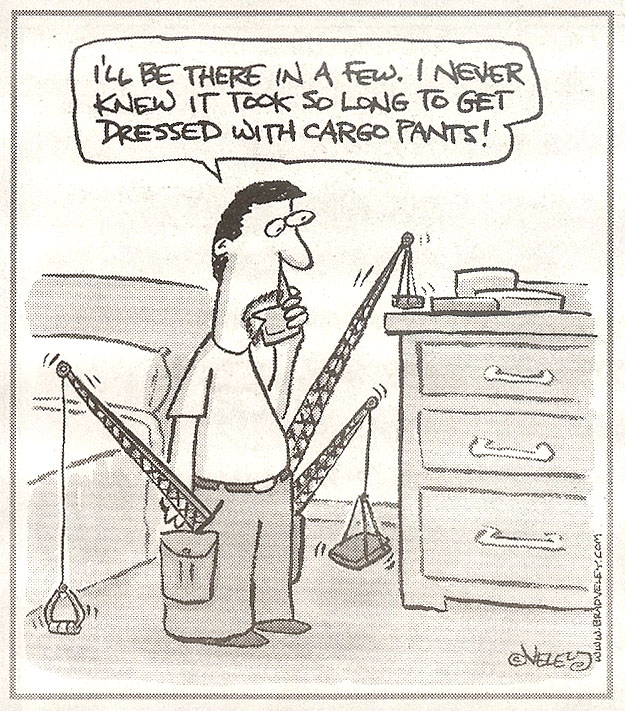|
I heard from a correspondent who hates the phrase gone missing. His e-mail called it an "ear-abrading" and "vulgar" usage. "Sends me right round the bend, mate!" he said.
I did a little digging and found that he's far from alone. "Gone missing," according to a word nerd at the Boston Globe, is "the least loved locution of the decade."
According to the Globe piece, this "chiefly British" phrase has been around since the 19th century, so it's not some trendy new grotesquerie. It's also not ungrammatical—if you can go insane, you can surely go missing. So what makes people hate it so much?
Especially considering the lack of a good alternative: I've always felt that "vanished" and "disappeared" sound like the missing person was the victim of a magic trick. And "turned up missing"? Please spare me. Anybody with something better than gone missing, please write.
Maybe it's that we have a complicated relationship with European savoir-faire in general…and the Brits in particular. Young American males, for instance, deal with a perceived sophistication gap, believing with some justification that English accents and guys named Colin get all the babes.
Ever since that little 18th century uprising of ours, many Americans traditionally have viewed Mother England with an uneasy mix of nostalgia and rebellion, so Brit-isms like "gone missing" can be irksome. Don't you get irrationally annoyed when your artsy friend says, "Let's wander about" instead of "around"? Or how about those people who write their phone numbers with periods instead of hyphens: 555.2940 instead of 555-2940…why do I hate that? Even someone putting that heinous horizontal bar through a 7 makes me crazy: "Look at me; I've been overseas, and now even my 7's are refined."
How many otherwise sensible Americans are mesmerized by Britain's royal family? And from Cary Grant to Hugh Grant, there's never been a shortage of British actors in Hollywood. In the early days of talkies, except for gangsters, cowboys, and blue-collar parts, leading men and women had distinct English accents, even though some of them came from Hell's Kitchen.
Now that my correspondent has exposed my unthinking use of "gone missing," it's made me a kinder, gentler word nerd. Remember how the old, intolerant word nerd always blamed pretentiousness when people said "more importantly," "close proximity," or "comprised of"? I was being too hard. In fact, we are bombarded with these expressions daily by high-profile media hotshots till our resistance breaks down. With repetition by smug authority figures (who couldn't pass English 101), some of the worst barbarities gain respectability.
Since we're on this subject, let's look at some words that broadcasters mangle.
Envelope, envoy, enclave Though you'd never know it from what you hear over the airwaves, the preferred pronunciation of these words' first syllable is "enn" rather than the faux-French "ahn."
Alleged It must come as a shock to many announcers, but alleged is a two-syllable word. It's pronounced uh-LEJD, not uh-LEDGE-id.
Camaraderie is a five-syllable word, but you usually hear only four in the media. That letter a before the r should be a clue to say comma-ROD-ery, not com-RAD-ery.
Bestiality Everyone's wrong about this one, because it's not BEAST-iality. Look at the spelling and then tell me: how do you pronounce b-e-s-t?
Homage This word has spun out of control in the last several years, but for most of my adult life it was correctly pronounced HOMM-ij. Then came AHM-ij, and it went downhill from there. Now we have everyone sounding oh-so-elegant with the pseudo-sophisticated oh-MAHZH, for which there's really no excuse.
This classic grammar tip by our late copy editor and word nerd Tom Stern was first published on July 4, 2013.
|
View and comment on this
article on our website.
|
|
Free BONUS Quiz for You!
[[firstname]], because you are a subscriber to the newsletter, you get access to one of the Subscribers-Only Quizzes. Click here to take a Vocabulary Quiz and get your scores and explanations instantly!
We will be adding many more quizzes this year to our already substantial list of quizzes. If you have suggestions for topics we have not yet covered, please send us a message at help@grammarbook.com.
|
Hundreds of Additional Quizzes
at Your Fingertips
Subscribe now to receive hundreds of additional English usage quizzes not found anywhere else!
Teachers and Employers
Save hours of valuable time! You may assign quizzes to your students and employees and have their scores tallied, organized, and reported to you! Let GrammarBook.com take the hassle out of teaching English!
"Fun to test my skills."
"The explanations really help ... thanks!"
"I can select the quizzes to assign to my students, and then the results are reported to me automatically!"
|

|
Don't need all the quizzes?
You can now purchase the same quizzes individually for ONLY 99¢ each.
Purchase yours here. |
If you think you have found an error in a quiz, please email us at help@grammarbook.com
|
 |
The Blue Book of Grammar and Punctuation
by Jane Straus, Lester Kaufman, and Tom Stern |
The Authority on English Grammar! Eleventh Edition Now Available
An indispensable tool for busy professionals, teachers, students, homeschool families, editors, writers, and proofreaders.
Available in print AND as an e-Book! Over 2,000 copies are purchased every month!
The publisher of The Blue Book, Jossey-Bass, A Wiley brand, is offering a 35 percent discount for those of you who order the book through Wiley.com. Shipping and tax are not included. Simply go to bit.ly/1996hkA and use discount code E9X4A.
Offer expires December 31, 2020.
|
Wordplay

|
 |
English In A Snap:
68 One-Minute English Usage Videos FREE |
Learn all about who and whom, affect and effect, subjects and verbs, adjectives and adverbs, commas, semicolons, quotation marks, and much more by just sitting back and enjoying these easy-to-follow lessons. Tell your colleagues (and boss), children, teachers, and friends. Click here to watch.
|
|





